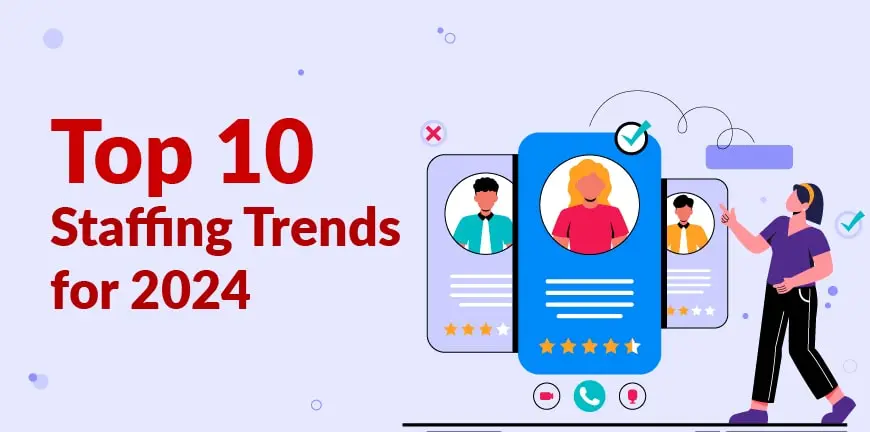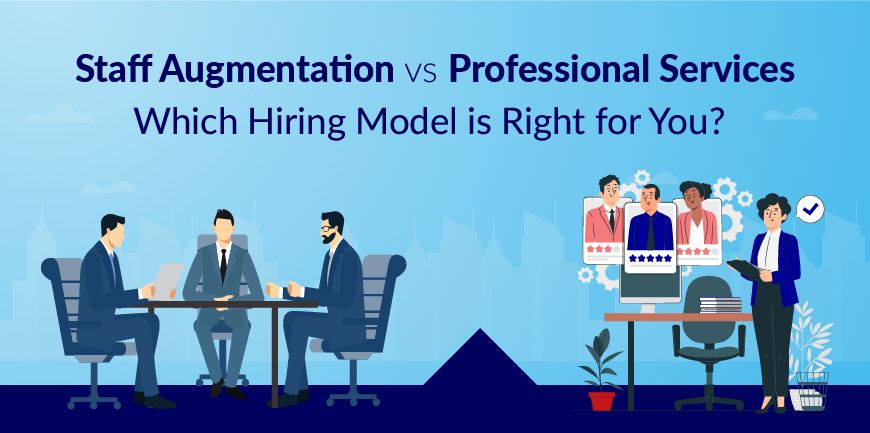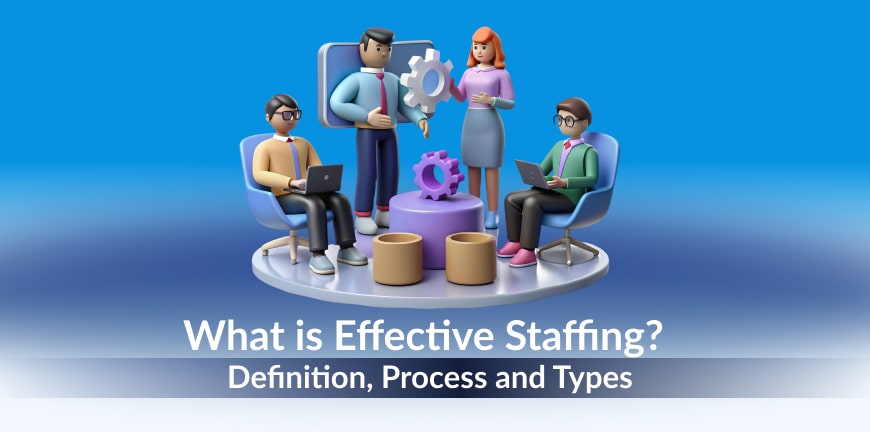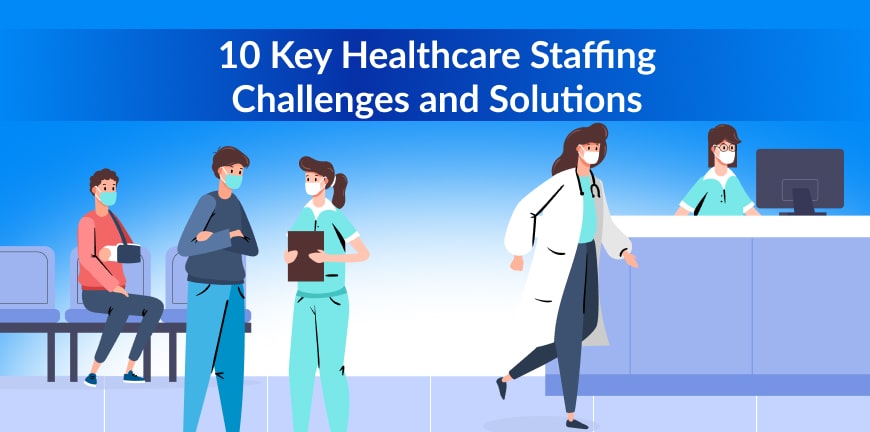
What Are Payroll Policies and Procedures?
21/09/2024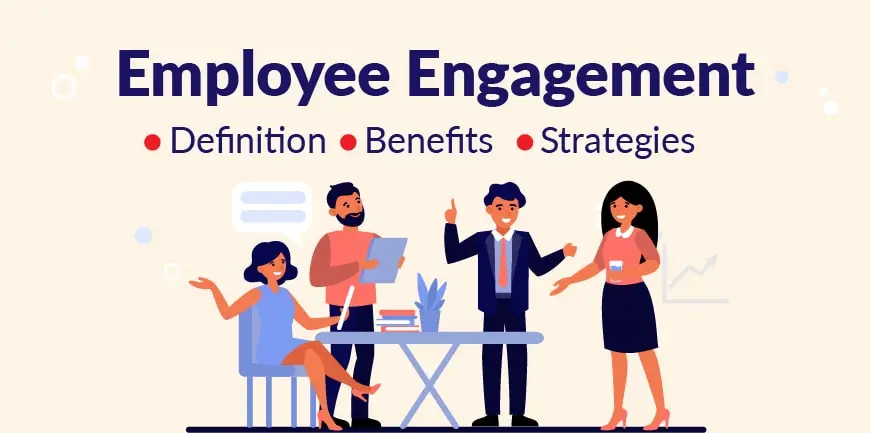
Employee Engagement – Definition, Benefits and Strategies
25/09/2024There have been significant transformations happening in the staffing industry fuelled by rapid technological advancements and the evolving workforce dynamics. The evolving staffing trends in 2024 has pushed businesses and organizations to stay abreast of these changes especially, as they aim to address the complexities of talent acquisition in an increasingly digitized world of work.
For companies, it’s imperative that they be innovative and adapt to the changing trends in the staffing industry if they wish to have a competitive edge and attract the right talent in an increasingly tech-driven market.
However, its essential to bear in mind that the staffing industry trends and challenges go hand in hand, meaning, while the trends can enable companies to access a pool of candidates with highly specific skill sets, such as cloud architects, cybersecurity experts, and AI developers, who are in high demand due to their roles in driving innovation it narrows down the number of available candidates leading to longer hiring times.
The fact that unemployment is at its lowest in 50 years is good news for job seekers but poses a tricky challenge for anyone looking to fill a vacancy. A 2024 report by Manpower reveals that 75 percent of employers are finding it difficult to fill roles. Staffing agencies must have deep knowledge and great networks with various sectors in order to address this.
Top 10 Staffing Trends for 2024
1. Remote work and hybrid models are gaining momentum
Remote work is present and already thriving and will continue to in the coming years. Organizations will increasingly adopt hybrid models and allow employees the flexibility to work both in- office and remotely, while maintaining work productivity. To see this through employers will be investing in remote work technologies in their efforts to support and embrace this shift.
2. Gig economy and freelance talent are on the rise
We are way past the time when traditional working methods were the only way of working. With the rising dearth of skilled talent out there, recruiters have embraced the approach of hiring quality candidates from across various regions, eliminating geographical limitations. Some of the these are individuals are, who, in the past, have been overlooked for various reasons. We are talking about non-traditional employees like disabled people, retirees, women with career gaps due to family responsibilities etc. Integrating freelancers into organizations not only promotes agility and cost-efficiency but can ensure a steady supply of talent.
3. Incorporation of Artificial intelligence (AI) and automation
AI is ruling every industry, but in staffing agencies, AI is being increasingly used to streamline the staffing process. By leveraging AI powered tools for candidate sourcing, screening and virtual interviewing, organizations can reduce the burden of administrative tasks on HR and allow them to focus on strategic initiatives.
4. Skills based hiring and reskilling
Its 2024, and skills-based hiring is all set to surpass traditional qualifications as the top priority for employers. Companies will focus on candidates who possess the specific skills needed to meet their business objectives. To address skill gaps, organizations will invest in training and upskilling initiatives, fostering a culture of continuous learning and professional development. Upskilling will become essential as new technologies are integrated into the workplace, ensuring employees can achieve the performance improvements these innovations promise.
5. Data driven decision making
Data rules everything. Data-driven insights will help organizations make informed talent acquisition and management decisions. In staffing, companies can rely on recruitment analytics to identify trends, measure the success of sourcing strategies and improve candidate experience.
6. Making diversity, equity and inclusion a priority in recruitment
Organizations will increasingly acknowledge the advantages of diverse and inclusive workforces. There will be a strong focus on advancing DEI initiatives through inclusive hiring processes, unbiased job descriptions, and diverse interview panels. Employers will prioritize building equitable workplaces that embrace and celebrate diversity in all its forms.
7. Focus on employee satisfaction
Employees decide the success of an organization. It is extremely important for organizations to ensure that employees are happy during their tenure with you. Its essential that organizations support and prioritize employee’s mental health by incorporating certain measures like allowing them flexible work schedules, offering them employee assistance programs and wellness resources, helping them with a better work-life balance.
8. Employer branding and better candidate experience
The global labour shortage is no secret, especially with the falling birth rates, unskilled labour and aging populations. As competition for top talent intensifies, employer branding and candidate experience will become critical. In the upcoming years, organizations will prioritize cultivating strong employer brands, clearly communicating their values, and providing a positive, seamless candidate experience throughout the hiring process.
9. Virtual onboarding and collaboration
Virtual onboarding is already present but in the coming years, it could be an integral part of the staffing process. Organizations can leverage technology to create engaging onboarding experiences, incorporate virtual collaboration tools and platforms to facilitate remote teamwork and foster a sense of belonging.
10. Sustainable staffing practices
In response to increasing social awareness, organizations will emphasize ethical and sustainable staffing practices in 2025. Employers will evaluate the environmental and social impact of their recruitment efforts and seek partnerships with diversity-driven and socially responsible staffing firms. Adopting sustainable staffing practices will also be essential for attracting younger generations, for whom this is often a key deciding factor in choosing employers.
Given these trends, 2024 will usher in a dynamic and adaptable workforce ecosystem, where businesses and staffing agencies collaborate to overcome challenges, drive engagement, and embrace a future centred on skills and regulatory compliance. As organizations embark on this transformation, the integration of technology, flexibility, engagement, security, and skill development will play a pivotal role in shaping the HR and staffing landscape for years to come.
By embracing these trends and leveraging innovative strategies, organizations can build agile, inclusive, and high-performing teams that thrive in the evolving world of work. Staying informed and proactive in implementing these trends will be vital for organizations looking to succeed in 2024 and beyond.

